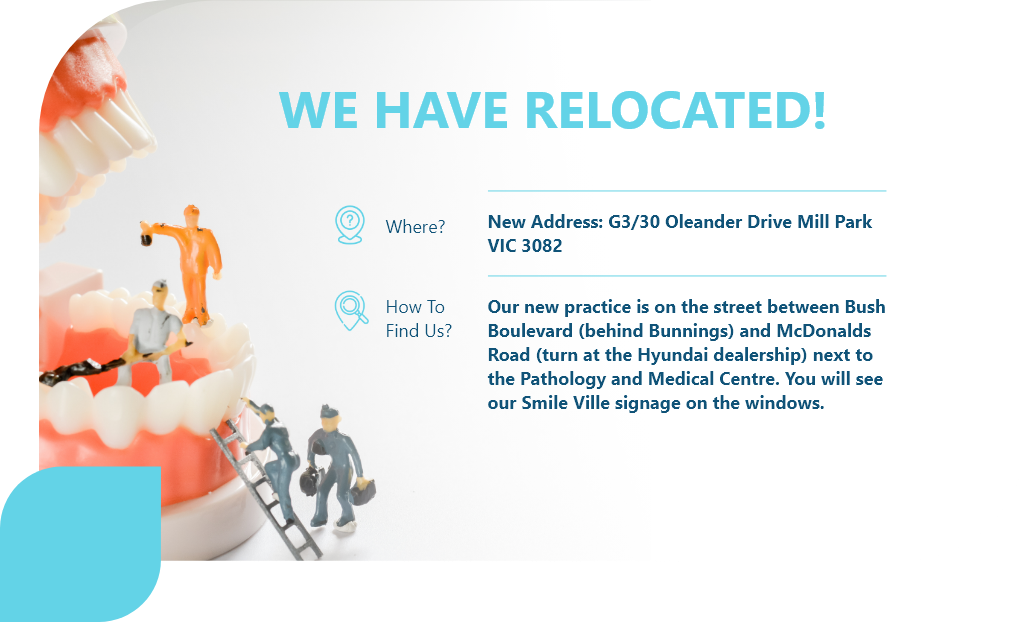Bleeding gums can be quite a nuisance. They can make brushing and flossing your teeth difficult, and they can also be quite painful. This oral tissue condition leads to the inflammation of the gums. And if left untreated, it can result in a more serious gum disease that can eventually lead to tooth loss.
In most cases, bleeding gums are nothing to worry about. However, if you experience bleeding that lasts for more than a week, you should see your dentist in South Morang to rule out any other underlying medical or dental conditions causes.
Top 8 Causes of Bleeding Gums
1. Brushing Too Hard
Brushing teeth is an automatic morning and evening routine, but most people brush with vigour, thinking that the harder they scrub, the cleaner their teeth will be. Unfortunately, this isn’t the case. Brushing too hard can damage the gums and cause them to bleed.
To avoid damaging your gums, it’s important to brush your teeth gently. Use a soft-bristled toothbrush and light back-and-forth strokes. Be sure to brush all surfaces of your teeth, including the front, back and top. You should also floss daily to remove plaque from between your teeth.

2. Gingivitis and Periodontitis
Gingivitis is the early stage of gum disease, and it is characterised by inflamed gums that bleed easily. Periodontitis, on the other hand, is the more advanced stage of gum disease and is indicated by receding gums, deep pockets between the teeth and gum line and persistent bleeding.
The bone around the teeth can also be affected, leading to tooth loss. If you notice that your gums are bleeding, it is important to see a dentist right away. With early diagnosis and treatment, gingivitis and periodontitis can be controlled, and their progression halted.
3. Poor Dental Hygiene
If you’re not brushing and flossing your teeth regularly, you’re opening yourself up to a whole world of dental problems. One of the most common is a build-up of plaque, which can cause the gums to become inflamed and bleed. When left unchecked, this can lead to serious gum disease.
Thankfully, regular brushing and flossing can help remove plaque and keep your gums from bleeding. So next time you reach for your toothbrush, remember that you’re not just keeping your teeth clean, you’re also protecting your gum health.
4. Hormonal Changes
For many women, bleeding gums are a fact of life. Hormonal changes during pregnancy and the menstrual cycle can make gums more sensitive and prone to bleeding. While this is generally nothing to worry about, it can be a nuisance.
Fortunately, there are a few things you can do to help reduce the bleeding. First, be sure to brush and floss regularly to remove any build-up of plaque that can irritate the gums. Second, use a soft-bristled toothbrush to avoid further irritation. Finally, see your dentist if the bleeding persists or if you have any other concerns.

5. Certain Illnesses
Leukemia, diabetes and other illnesses can cause the gums to bleed. Leukemia is a type of blood cancer that can cause the gums to bleed. This is because leukemia cells crowd out healthy blood cells, which results in a decrease in platelets. Platelets are essential for clotting, so when they’re low, bleeding can occur.
Diabetes can also cause bleeding gums because it decreases the body’s ability to fight infection. This puts people with diabetes at a higher risk for gum disease, which can lead to bleeding gums.
If you have severe bleeding gums, it’s important to see your dentist or doctor to find out the cause. In most cases, it’s nothing serious and can be easily treated. But in rare cases, it could be a sign of something more serious. So if your gums are bleeding, don’t hesitate to seek medical help.
6. Some Medications
For people who take certain medications, bleeding gums can be a serious problem. Blood thinners and aspirin both have the potential to cause gum bleeding. This can lead to infection and other complications, making it important for people on these medications to take extra care of their oral health.
Fortunately, there are a few simple things you can do to help reduce the risk of bleeding gums, such as using an electric toothbrush and avoiding hard foods. If you’re on medication that could cause bleeding gums, talk to your dentist about how you can best protect your teeth and gums.
7. Vitamin C Deficiency
Vitamin C is essential for the production of collagen, which helps to support the blood vessels in the gums. Without sufficient vitamin C, the blood vessels can become fragile and split, leading to bleeding. A deficiency of this vitamin also contributes to gum disease, as it impairs the ability of the body to fight bacterial infections.
Make sure to eat foods rich in vitamin C, such as oranges, grapefruits, bell peppers and broccoli. You can also take a supplement to ensure that you’re getting enough of this essential nutrient.
8. Smoking
The chemicals in tobacco can damage the delicate tissue in the gums, making them more susceptible to bleeding. In addition, smoking can also reduce the body’s ability to heal wounds, which can make it difficult for bleeding gums to heal properly.
So if you’re a smoker, it’s important to see your dentist regularly. And if you’re thinking about quitting smoking, that’s great news for your oral health.

While gum bleeding may not be a serious dental issue, it can lead to severe oral health problems that may also affect your overall health. For this reason, it helps to visit your South Morang dentist regularly so they can evaluate your dental condition and recommend the best course of action to prevent gum disease and other dental problems.
Contact SmileVille today!





